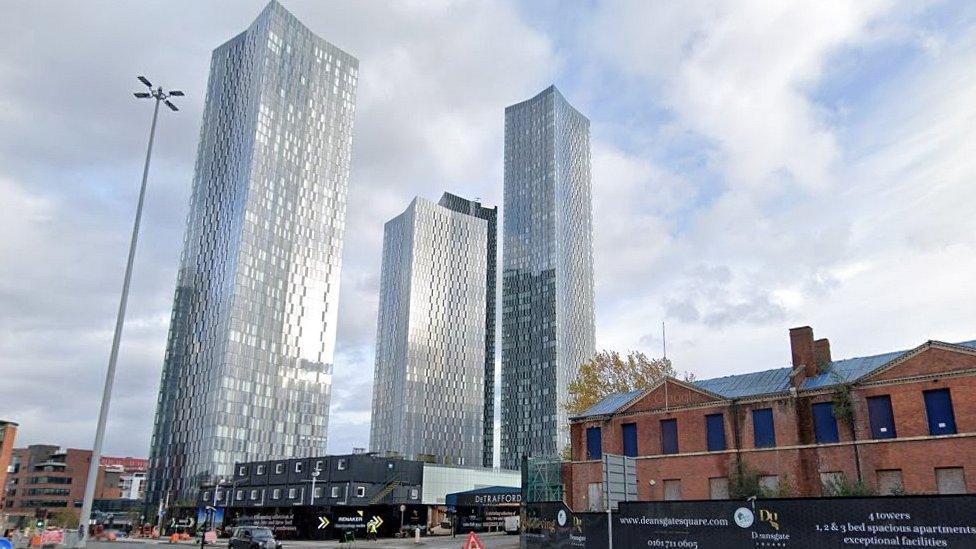Manchester's skyscraper boom: New tower plan among Europe's tallest
- Published
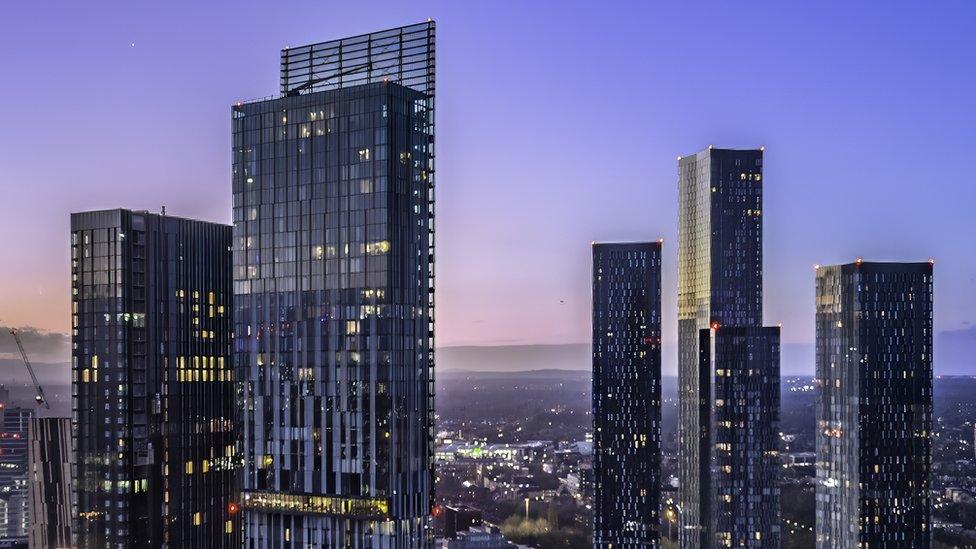
A cluster of skyscrapers have been built in Manchester city centre in the last decade
A city's skyline looks set to continue expanding upwards with a bid to build the tallest residential building in Western Europe.
Developer Salboy will submit plans for a new Manchester skyscraper, the latest in a cluster of high-rise towers built in the last ten years.
If approved the 241m (790ft) high Viadux 2 scheme would take four years to build.
Salboy's Simon Ismail said it was going to be "the landmark of Manchester".
Designed to be built on a set of listed Victorian archways which had formed part of Manchester Central Station, Viadux 2 would surpass the Peninsula building in London's Canary Wharf by eight meters.
It would also dwarf its closest Manchester rival, the south tower at Deansgate Square, which is 201m (659ft) high.
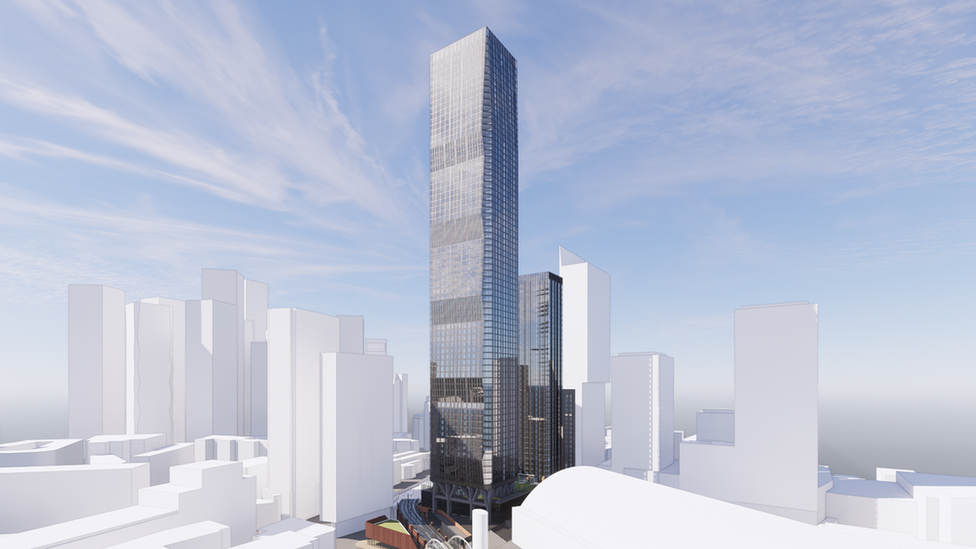
The developers behind Viadux 2 said it will be Europe's tallest residential building
"We purposefully wanted to go for the tallest residential building in Europe... it's a flagship building," Salboy's managing director Mr Ismail said.
The tower will have 800 homes in it.
Housing is in great demand in Manchester, and Mr Ismail said much of that was driven by "postgrads staying on, the largest student population in Europe, and a cost of living that's half of that in London".
Mr Ismail said as long as there was "massive demand", the firm would continue building.
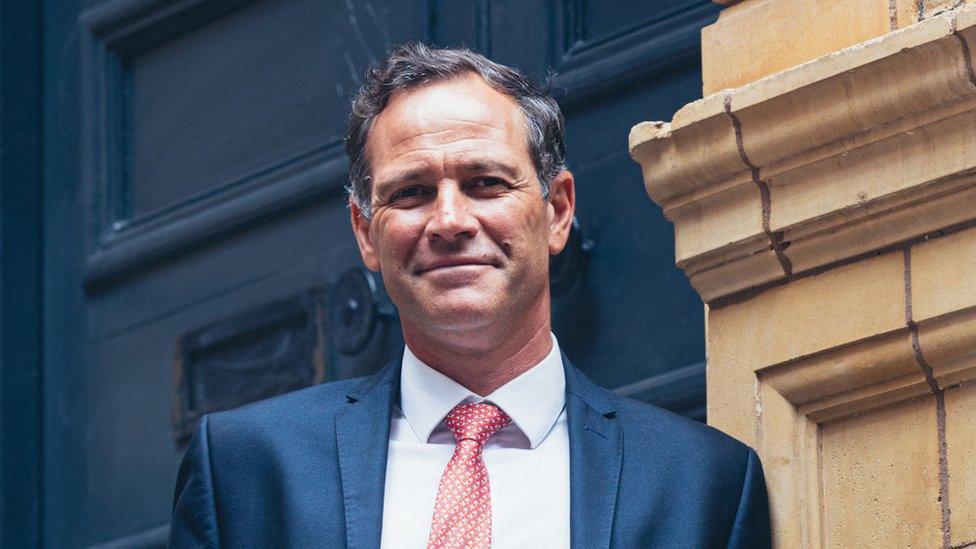
Simon Ismail, managing director at Salboy, said there was huge demand for homes
Salboy, which says it has already provided about 4,000 homes in Manchester, is also working on St Michaels Tower with the former Manchester United footballer Gary Neville.
Mr Ismail said he has "no idea" how long the city's skyscraper boom will continue, but said he never believed it when people had previously claimed "the bubble was going to burst"
"When you look what Manchester's got behind it, it's got too much backing it up, industrious people and a history of doing things right," he added.
Developer Renaker has already built a cluster of skyscrapers at Great Jackson Street on the southern edge of the city centre.
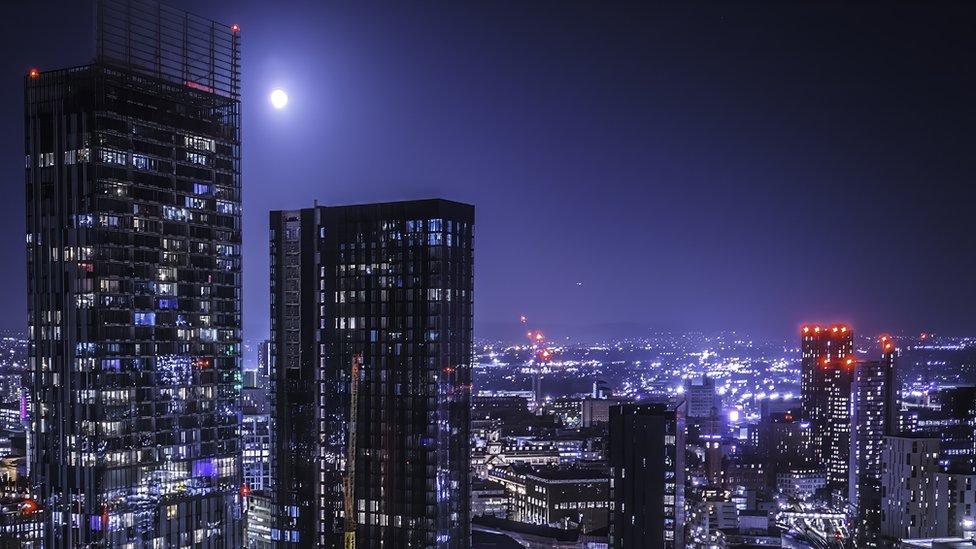
Many high rises have been built through loans from a public fund
It has also put up towers at Colliers Yard in Salford and started a scheme to build four skyscrapers at Trinity Islands next to the River Irwell.
The company has received mrore than £500m in loans from the Greater Manchester Housing Investment Fund.

How has public money fuelled Manchester skyscraper boom?
The £300m Greater Manchester Housing Investment Fund was launched by George Osborne when he was chancellor of the exchequer in 2014.
The cash is loaned to developers by the Greater Manchester Combined Authority (GMCA) and is then paid back, with more than 10,500 new homes have been supported so far.
The value of the loans has now reached £942.5m, and of this, Renaker has benefited from £508m to help them build 4600 homes across eight developments.

Eamonn Boylan, GMCA chief executive, said the success of the fund has seen the initial £300m "recycled twice".
He said the fund was made possible in Greater Manchester because the region's ten local authorities agreed to underwrite the loans as an "illustration of confidence and commitment to a common cause".
He said the authorities had a "different view of risk" and understood the local market place, meaning loans were given to firms that might otherwise have been unable to get funding.
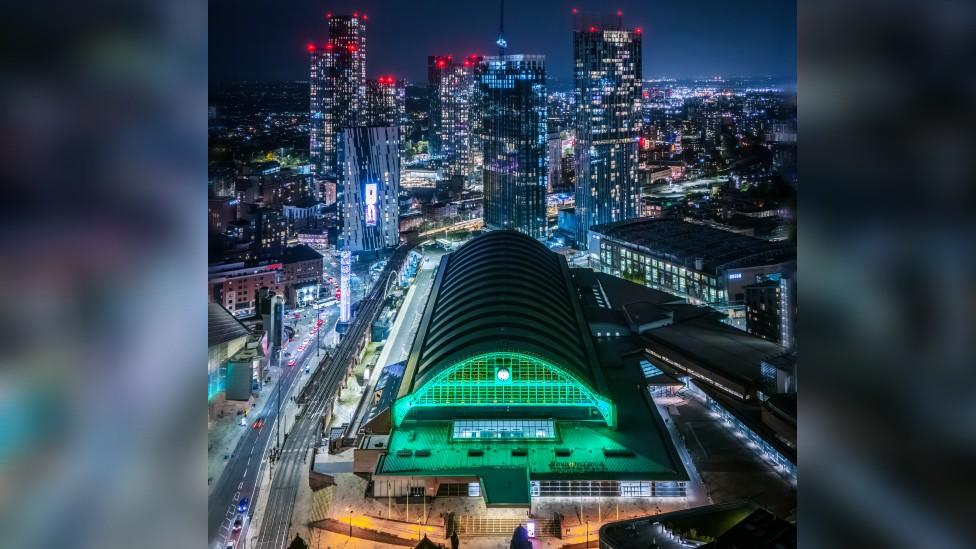
Manchester's dramatic transformation has been captured by local photographers
Manchester's evolving skyline has also caught the attention of local photographers, like 47 year old Andy Mallins.
He has sold his pictures of "Manc-hattan" to Mancunian expats who live across the world, and said the city's transformation from the "derelict 1980s" has been "amazing".
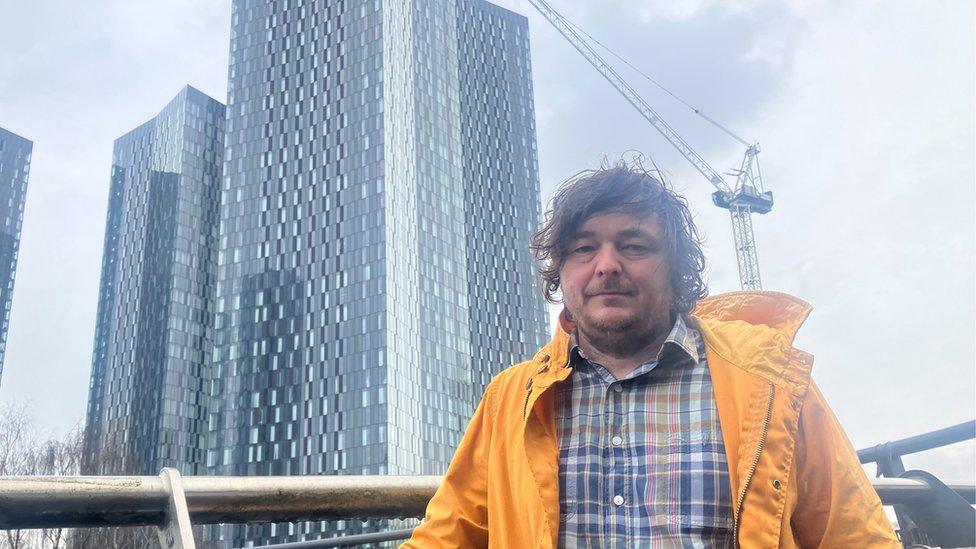
Photographer Andy Mallins said the city was turning into "a mini-New York"
"I like how you have the old architecture, the Manchester Central Exhibition Centre, Central Library, and others sites," he said.
"The mix of old and new looks amazing at night when it's all lit up.
"It makes for a great landscape really.
"I don't think there are any other cities like it."

Why not follow BBC Manchester on Facebook, external, X, external and Instagram, external? You can also send story ideas to northwest.newsonline@bbc.co.uk
Related topics
- Published28 November 2023
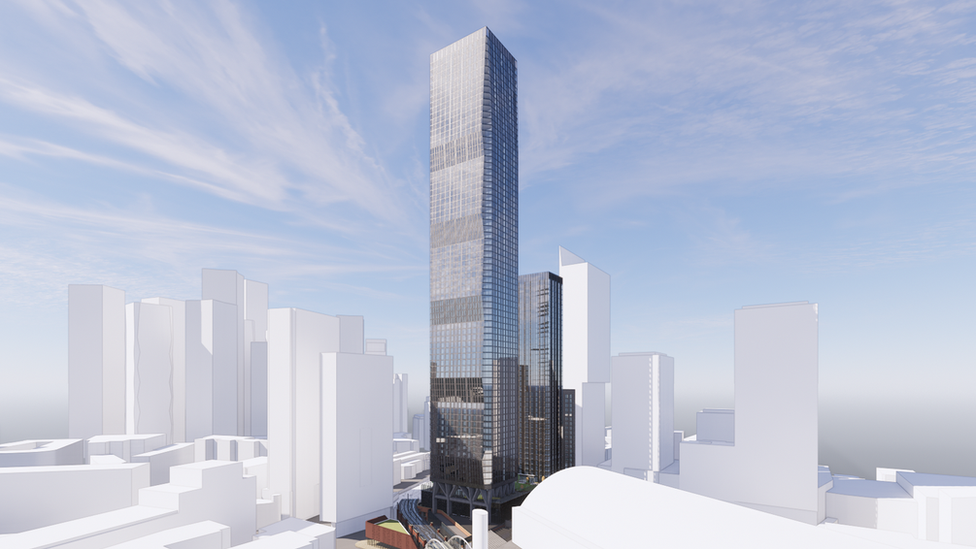
- Published14 December 2021
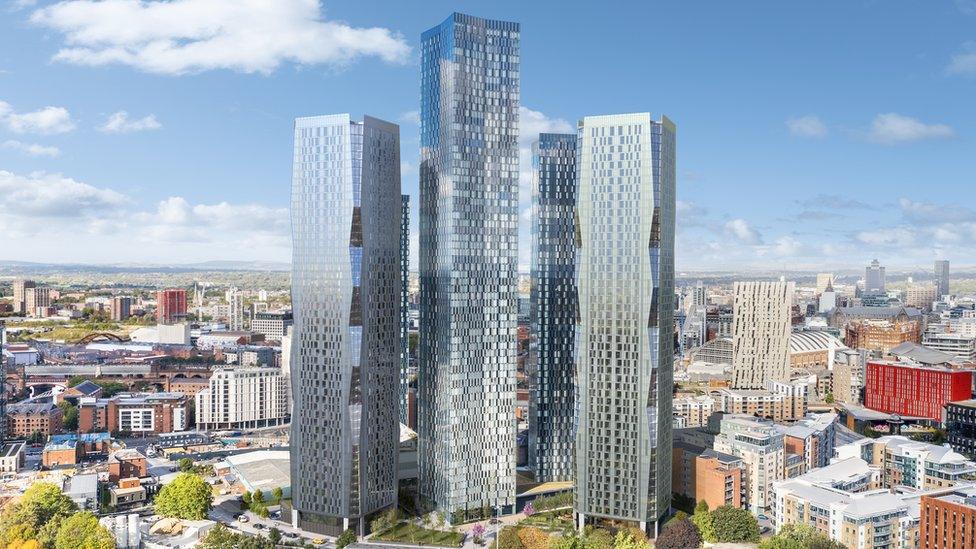
- Published18 March 2022
